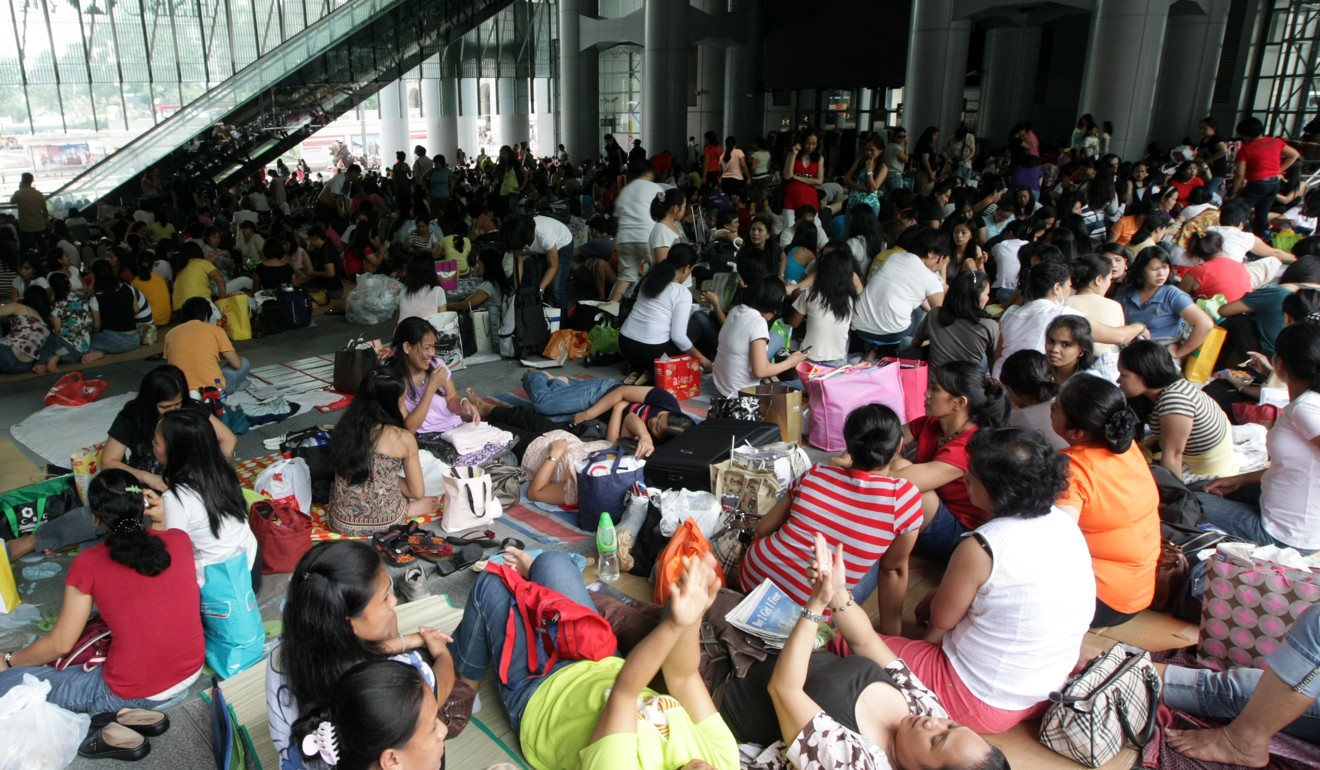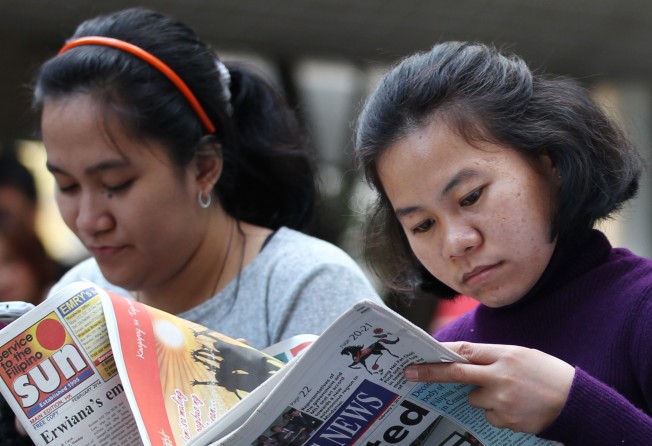
Hong Kong urged to investigate local partners of illegal recruiters arrested in the Philippines
- Calls have emerged for the city’s authorities to look into ties between three people detained in the Philippines and local agents who allegedly charged domestic workers excessive job placement fees and withheld their passports

Experts and domestic workers are calling for Hong Kong authorities to investigate the local partners of three suspected illegal recruiters who were arrested in the Philippines last week.
Arlene Tabunot, Aaron Coronado and Robert Coronado were detained in their home country after eight victims filed formal complaints with Philippine authorities. A pre-trial hearing took place on Tuesday in Manila.
The case in the Philippines specifically refers to illegal recruitment – but there is more to it, according to experts in Hong Kong. They said Tabunot’s business goes beyond the Philippines and has deeply rooted ties to Hong Kong.
David Bishop, a specialist in accounting and law at the University of Hong Kong, has been following Tabunot’s operations in the city, along with a group of HKU students.
He said Tabunot has operated both in the Philippines and Hong Kong, and that she works with several individuals and agencies in the city.
Their wrongdoings, the expert noted, have mostly do with charging excessive job placement fees and withholding domestic workers’ passports as well as other documents.
Some 50 workers made complaints to the Philippines Overseas Labor Office in Hong Kong about an employment agency in the city, which they claimed had ties with Tabunot. The local agency has given refunds to between 10 and 15 workers.
Philippine labour attaché Jalilo Dela Torre previously told the Post: “Workers reported that she [Tabunot] came to Hong Kong, collected illegal fees and had local partners.”
More than 10 workers have also made complaints to the Employment Agencies Administration, which did not respond to questions from the Post.
It is also unclear whether the Hong Kong police are investigating the matter. But Bishop said he handed information to local authorities about two weeks ago.
“These people have been operating in Hong Kong for eight years and nothing was done about it here,” he said.

“As soon as it came to light in the Philippines, the authorities there immediately acted upon it. It would be interesting to watch in the coming month or so whether Hong Kong takes these things seriously and prosecutes or at least investigates those who are at the heart of these claims here.”
While authorities in the Philippines are moving a case against Tabunot, their partners in Hong Kong should also be investigated and hold accountable, Bishop argued.
“Even though these are Filipino nationals involved, there are people running these crimes on the Hong Kong side. They are Hong Kong people with Hong Kong businesses.”
Bishop noted that in the past couple of years the Hong Kong government had enacted a code of practice for employment agencies, enhanced its employment ordinance and launched an action plan to combat human trafficking.
“This case provides a great test on whether Hong Kong did those things for show or whether they did it because they were serious about tackling these problems,” he said.
Eman Villanueva, spokesman for the Asian Migrants Coordinating Body in Hong Kong, said most domestic workers ended up having to pay illegal placement fees.
“Except very few who don’t charge anything to workers, most employment agencies collect illegal fees from workers and that happens in collusion with their partners in the Philippines, who receive a percentage,” he described.
In the Philippines, there is a zero placement and processing fee policy, but agencies can charge medical and training fees. In Hong Kong, agencies are only allowed to collect 10 per cent of the first month’s salary, or HK$452 under the city’s minimum wage for domestic workers.
“Many workers end up paying placement fees under the guise of other types of fees, such as training fees, internet fees, video fees … all sorts of fees,” Villanueva said.
He said the Philippines government should consider providing free training, instead of outsourcing it to agencies.
The migrants’ leader also said direct hiring should be allowed in Hong Kong. Currently, workers need to use an agency in their home country and another in Hong Kong.
“The workers should be allowed to find jobs by themselves and process the documents. It would lessen the cost for workers and break the agencies’ monopoly,” Villanueva said.